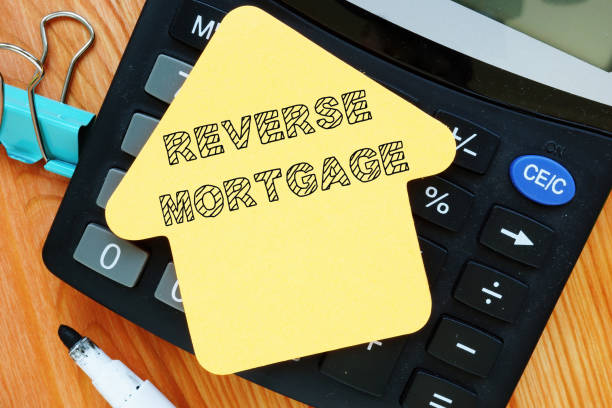A Senior’s Guide to Reverse Mortgages: Unlocking Home Equity in Canada
For many older homeowners in Canada, reverse mortgages offer a unique financial option to tap into home equity without having to sell their homes. This guide explores how reverse mortgages work, their benefits and challenges, and what to consider when choosing one.
For many older homeowners in Canada, reverse mortgages offer a unique financial option to tap into home equity without having to sell their homes. This guide explores how reverse mortgages work, their benefits and challenges, and what to consider when choosing one.

What Is a Reverse Mortgage?
Reverse mortgages are financial products specifically designed for individuals aged 55 or older. They allow homeowners to convert part of their home's equity into accessible funds, without selling their property or making regular loan payments. Unlike conventional loans, the funds are paid to the homeowner by the lender and are typically only repaid when the home is sold, the homeowner moves to care facilities, or passes away.
Eligibility depends on age, home location, appraised value, and the age of the youngest titleholder. The older the homeowner, the more equity they can usually access. This makes reverse mortgages well-suited for seniors looking to unlock financial value from their long-owned homes.
Reverse Mortgages vs. Equity-Based Loans
A common question among seniors is how reverse mortgages compare to traditional home equity loans. The main distinction lies in the repayment terms: home equity loans require fixed monthly payments and usually good credit, which may not be feasible for retirees.
In contrast, reverse mortgages do not involve monthly repayments. The loan is settled once the home is sold or no longer occupied by the borrower. This structure makes it easier for individuals on a fixed pension or with poor credit histories to qualify and benefit.
Key Benefits and Drawbacks
Advantages:
1. No Monthly Repayments: Eliminates the stress of monthly loan payments.
2. Stay in Your Home: Continue living in your residence while accessing its equity.
3. Tax-Free Income: Proceeds are generally not taxed, maximizing usable income.
4. Credit Flexibility: Approval is based more on age and home value than credit score.
Disadvantages:
1. Interest Accumulation: The unpaid interest grows over time, increasing the loan balance.
2. Estate Impact: The eventual loan repayment may reduce the inheritance left to heirs.
3. Setup Costs: Origination, legal, and appraisal fees can add to initial expenses.
4. Less Available Equity Later: Using equity now may limit future borrowing capacity.
Choosing the Best Reverse Mortgage Provider
When evaluating lenders in Canada, seniors should consider both the financial and service aspects. Look for:
• Established Providers: Choose institutions known for their reliability and customer support.
• Rate Transparency: Compare all fees, interest rates, and repayment terms.
• Customer Assistance: Ensure the lender is helpful and clearly explains all loan aspects.
• Product Flexibility: Determine if they offer lump sum payments, ongoing disbursements, or credit lines.
Steps to Take Before Applying
Making an informed decision about a reverse mortgage involves several important steps:
• Identify Your Goals: Are you supplementing income, paying off debts, or funding renovations?
• Include Your Family: Since it affects estate planning, involve your heirs in the conversation.
• Compare Alternatives: Explore other financial options such as selling and downsizing or using government programs.
• Read the Fine Print: Understand all loan conditions, fees, interest accumulation, and repayment clauses.
Conclusion
A reverse mortgage can serve as a helpful tool for Canadian seniors seeking financial freedom and stability without leaving their homes. With proper planning, this type of loan can provide income flexibility, especially for retirees with limited credit access. However, it’s essential to balance the benefits with the long-term implications on home equity and inheritance. With professional guidance and careful comparison, reverse mortgages can support a more comfortable and secure retirement.